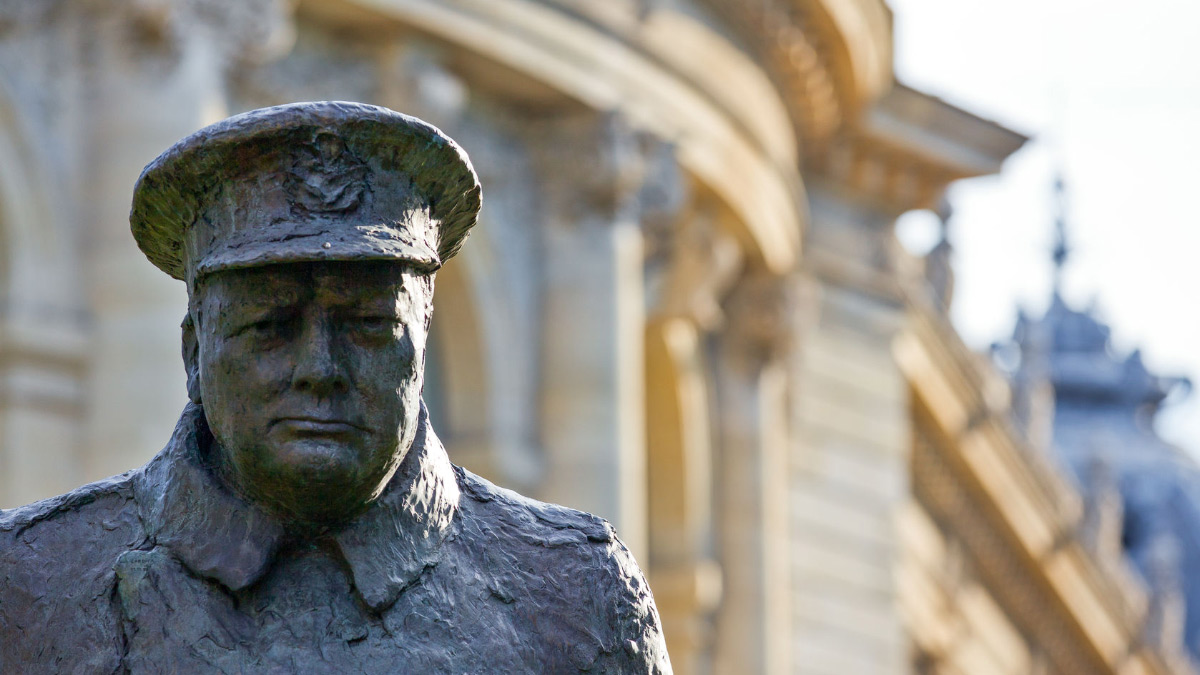To play Winston Churchill is no easy task, as Richard Burton (The Gathering Storm) and Robert Hardy (Churchill: 100 Days that Saved Britain) discovered firsthand. Gary Oldman’s fine performance in Darkest Hour may grab an Oscar next month, but the film fails to convey the key backstory.
In May of 1940, the forces of National Socialist Germany are on the march and prevailing on the continent. The British Army is surrounded and facing annihilation. Prime Minister Neville Chamberlain and Viscount Halifax want to negotiate a peace settlement.
King George VI taps Churchill to lead a government, but he is not inclined to negotiate with Hitler. Trouble is, Churchill is not exactly in a position of strength. He takes a call from American President Franklin Roosevelt, but Uncle Sam is not yet at war with the Axis powers and not inclined to deliver the warplanes Churchill needs. And there’s a reason no call comes from the Soviet Union’s Josef Stalin.
On August 23, 1939, just eight months before the events of Darkest Hour, Stalin signed a pact with Hitler. The Stalin-Hitler pact gave Latvia, Lithuania and Estonia to Stalin, along with part of Poland. In September 1939, the USSR and Nazi Germany both invaded Poland, effectively starting World War II.
So in May of 1940, Stalin and Hitler were allies against Britain, and Churchill was in a more precarious position than the film indicates. Viewers should understand that Darkest Hour was not the first work of cinema to leave out the pact.
Another recent offender is the 2015 film Trumbo, starring Bryan Cranston as screenwriter Dalton Trumbo. Portrayed as a brave fighter against the “Hollywood blacklist,” Trumbo actually joined the Communist Party during the Stalin-Hitler pact, when many others left the Party, never to return.
In 1940, when Britain stood alone against the Nazi war machine, Trumbo wrote The Remarkable Andrew. In this novel, the ghost of General Andrew Jackson argues against American military aid on the grounds that Britain is “already licked.” So, like the rest of the American Communists, the truly loathsome Trumbo was, at least in a tactical sense, pro-Nazi at the time.
The Stalin-Hitler pact was a key political event of the past century, but Hollywood films black it out entirely. Darkest Hour would have been a much stronger film had it acknowledged the historical truth.
To its credit, the movie does indicate that Churchill’s military record was a mixed bag, citing the disastrous Gallipoli campaign of World War I. “Churchill’s folly,” as some called the bloody debacle, got a film treatment in Gallipoli (1981), starring Mel Gibson. The film tells the story from point of view of colonial forces that bore the brunt of the conflict and often wound up as cannon fodder.
In Darkest Hour, Churchill also mentions his service during the Boer War of 1899-1902. For the dark side of that conflict, see the 1980 film Breaker Morant, starring Edward Woodward and Bryan Brown.
As Gallipoli and Breaker Morant show, war is not a pageant of glorious heroism. For its part, Darkest Hour doesn’t dramatize the actual conflict of World War II, but it does showcase Gary Oldman’s fine performance of Churchill’s finest role.
Despite the lapse on the Stalin-Hitler pact, viewers of all ages will have no doubt about a key reality. Had Churchill caved in to Hitler instead of fighting on, the world today would be a much different place.








